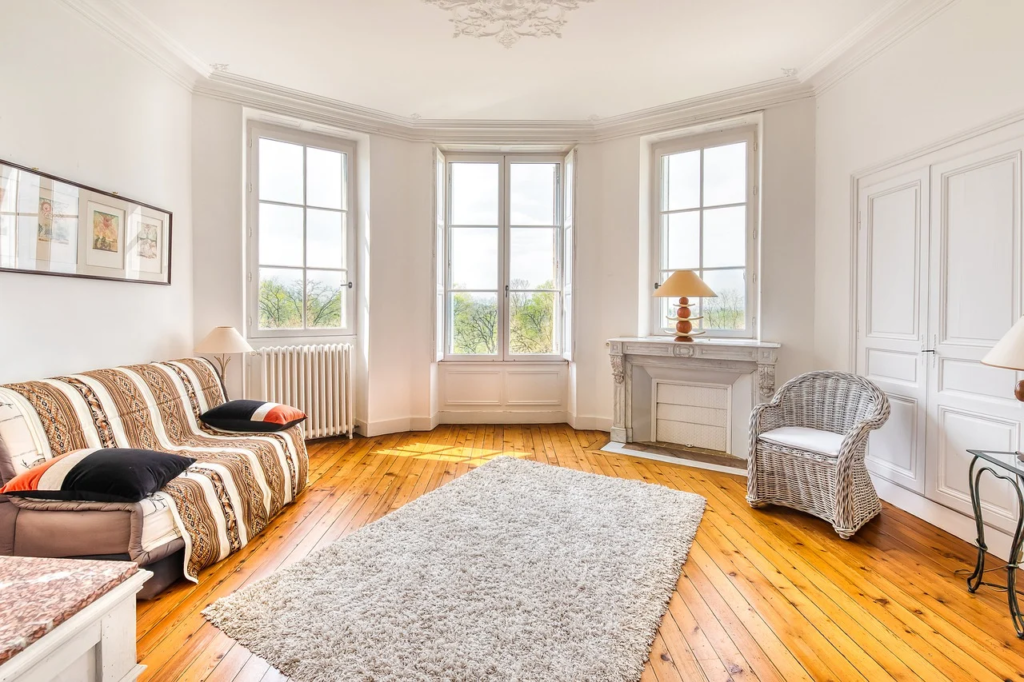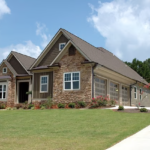Choosing new windows for your house can feel overwhelming, but it doesn’t have to be. By understanding your needs and preferences, you can make an informed decision that enhances your home’s aesthetic and energy efficiency. This guide will help you explore the various styles, materials, and features available, ensuring you find the perfect windows tailored to your lifestyle.
Energy Efficiency
When selecting new windows, considering sustainability is crucial for both environmental impact and cost savings. The manufacturers behind VELUX Windows can explain how energy-efficient windows can significantly reduce heating and cooling costs by minimizing heat transfer, which leads to a more comfortable living environment year-round. They also enhance your home’s overall energy performance, contributing to a sustainable lifestyle.
To assess energy efficiency, look for windows with a low U-factor, which indicates better insulation, and a low Solar Heat Gain Coefficient (SHGC), which measures how much solar heat is allowed through. Additionally, check for ENERGY STAR® certification, which signifies compliance with strict energy efficiency guidelines. By prioritizing energy efficiency, homeowners not only lower utility bills but also improve indoor comfort and increase property value over time.
Style and Functionality
When choosing new windows, considering style and functionality is essential for both aesthetic appeal and practical use. Windows can dramatically influence the exterior look of your home and should align with your architectural style — whether it’s modern, traditional, or somewhere in between. Functionality refers not just to how windows operate, but also to their role in natural ventilation and light regulation.
When selecting windows, consider materials such as vinyl, wood, or aluminum based on maintenance needs, insulation properties, and desired appearance. Also, explore features like double or triple glazing for improved insulation and soundproofing, and choose window styles – like casement, sliding, or awning — that enhance accessibility and usability. By balancing style with functionality, you can create a beautiful and efficient living space that reflects your personal aesthetic while meeting practical needs.
Window Material
Modern windows are also made from various materials, and each has its benefits and drawbacks depending on your priorities. Here are your choices:
- Vinyl – Durable, low-maintenance, energy-efficient, affordable, versatile.
- PVC – Affordable, lightweight, durable, low-maintenance, weather-resistant
- Wood – Natural, classic, insulating, durable, aesthetic
- Aluminum – Lightweight, strong, low-maintenance, sleek, durable.
- Fiberglass – Energy-efficient, durable, low-maintenance, insulating, versatile
- Composite – eco-friendly, durable, low-maintenance, energy-efficient, versatile.
- Clad wood – – Aesthetic appeal, weather-resistant, low-maintenance, durable, and insulating
Different materials offer varying energy efficiency levels, cost-effectiveness, and style options, ensuring that homeowners select windows that complement their home’s design while providing long-term performance and comfort tailored to their needs.
Durability and Climate Suitability
Considering durability and climate suitability ensures long-term performance and comfort. Windows are your home’s first line of defense against the elements, so they must withstand local weather conditions, such as heavy rainfall, extreme temperatures, or intense UV exposure. Focusing on materials known for their resilience, like fiberglass or vinyl, can enhance longevity.
Moreover, look for features such as impact resistance and corrosion resistance, especially in coastal or storm-prone areas. Quality installation also plays a crucial role in a window’s durability. By prioritizing these factors, homeowners can avoid premature replacements, reduce maintenance costs, and ensure their windows contribute positively to their home’s energy efficiency and overall aesthetic appeal.
Installation Quality
Poorly installed windows can lead to air leaks, water infiltration, and compromised energy efficiency, negating the benefits of your selected windows. To assess installation quality, start by researching local contractors and checking their reviews, certifications, and experience with window installations. Request detailed estimates and ensure they include proper measurements and weatherproofing.
Further, look for professionals who follow industry standards and offer warranties or guarantees on their work. A thorough installation also involves using high-quality materials and techniques tailored to your specific windows and home. By investing in quality installation, homeowners can maximize the benefits of their new windows and enjoy a comfortable, energy-efficient living space.
Cost and Return on Investment
When selecting new windows, considering cost and return on investment (ROI) is vital for making a financially sound decision. High-quality windows can be a significant upfront expense, but they often lead to substantial long-term savings on energy bills and maintenance. To calculate ROI, assess the potential energy savings by looking at the windows’ energy efficiency ratings and comparing them to your current windows.
Estimate the lifespan of the new windows against the installation cost to determine how long it will take to recoup your investment through savings. What’s more, consider the increased home value that may result from upgraded windows. By thoroughly evaluating costs and potential returns, homeowners can choose windows that align with both their budget and their desire for enhanced home performance.
In conclusion, choosing new windows is a crucial investment in your home’s comfort and value. By considering energy efficiency, style, durability, and proper installation, you can make informed decisions that enhance your living space. Take the time to research and prioritise your needs, ensuring your selected windows serve you well for years to come. Happy window shopping!





